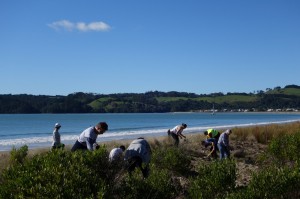The Cooks Beachcare Group consists of residents and ratepayers working in partnership with local Government agencies to protect valuable dunes at the western end of this Mercury Bay beach (~1.3 km).
The group aims to replace invasive exotic weeds with naturally occurring native plants in consultation with local residents and without significantly restricting views or beach access. The land is esplanade reserve, managed by Thames Coromandel District Council (TCDC) who assist as required.

Following site preparation, native plants, such as, pingao and knobby club rush are planted to help protect the dunes and repair storm damage. These native plants also support nesting sites of NZ Dotteral and Variable Oystercatcher, and provide refuge for lizards and insects such as the coastal copper butterfly. Check out the group at cooksbeachcare.org.nz
The group has a regular weekly working bee usually on Thursdays mornings to target the removal of noxious weeds, rubbish, as well as some planting. There are also larger community plantings during autumn and spring. Plants, site preparation, maintenance and technical advice is provided by Waikato Regional Council.
DOC has provided funding through the “Community Conservation Fund” to employ professional weed control contractors, “Second Nature”, to remove ivy, yucca and agapanthus. The group is also supportive of other nearby beach restoration projects such as at the eastern end of Cooks Beach (near the Purangi River) where the Cook Memorial marks the site where Captain Cook observed the transit of Mercury in 1769.
In 2019 celebrations will celebrate the 250th anniversary of this event. The Thames Coromandel District Council (TCDC) designed a restoration plan which involved earthworks to remove pine trees and rubbish removal and reshape the dune.

